1- The process of globalization and international integration, along with the remarkable development of science and technology, opens up many development opportunities for countries around the world in many fields, such as investment capital, goods, technology and labor force, etc., thereby contributing to promoting economic and trade development, creating conditions for expansion, international cooperation and exchange, and solving some common global problems. For developing countries like Vietnam, participating in the globalization and international integration process helps to mobilize capital, technology, markets, management experience, etc., opening up development opportunities in many fields.
Installing wind turbine blades at DEEP Industrial Park, Hai Phong City_Photo: Document
However, the process of globalization and international integration also poses great challenges in many fields, such as politics , economics, culture, society..., including challenges from non-traditional security issues, such as human security, population and public health, the gap between rich and poor, social evils, environmental pollution, resource depletion and climate change, threatening energy security, threatening the defense and security of each country, deeply affecting regional and world security. Therefore, no country can avoid these impacts and even less can solve them on its own.
In practice, many non-traditional security issues are created by humans, either intentionally or unintentionally, and in turn pose threats to human security, community security, national security and human security. For example, humans exhaust natural resources in a "destructive" manner, implement projects that pollute the environment, affect public health in pursuit of economic growth goals, "regardless of the future", causing consequences for the ecological environment, leading to climate change on a global scale... The consequences of climate change have become a problem for countries around the world , a serious challenge for all of humanity.
Vietnam participates in globalization and international integration from the starting point of a slow-growing economy, with weak potential, low competitiveness, and limited management skills, so adapting to globalization and international integration still faces many difficulties. In addition to positive impacts, our country faces many challenges, including non-traditional security threats (in addition to traditional security threats) arising from the negative side of globalization, the market economy, and the misuse of science and technology. Recently, non-traditional security threats have developed in a complex manner, including challenges to human security and energy security closely linked to issues of ecological environment, natural resources, and climate change. Ensuring energy security for production development and life is of great significance to political and social stability and social security, as well as the implementation of sustainable development goals of any country, and Vietnam is no exception.
2- Resolution No. 55-NQ/TW, dated February 11, 2020, of the Politburo, "On the orientation of Vietnam's national energy development strategy to 2030, with a vision to 2045" affirms that our country's energy sector has developed rapidly and relatively synchronously in all sectors and fields; closely following the orientation and achieving specific goals, providing energy, especially electricity, to meet the requirements of socio-economic development with increasingly improved quality; energy consumption has increased significantly; the energy sector has become a dynamic economic sector, making important contributions to promoting socio-economic development, ensuring national defense and security in many localities and the country. However, the goal of ensuring national energy security still faces many challenges; domestic supply sources are not enough to meet the requirements, energy must be imported; many power projects are implemented slowly compared to the planning and plan; Some indicators of energy security are changing in an unfavorable direction. The management and exploitation of energy resources have not met the requirements. The efficiency of energy exploitation and use is still low. Environmental protection in the energy sector has not received due attention in some places and at some times, causing social outrage. Our country is currently facing major challenges in ensuring national energy security.
According to the report, the energy consumption per unit of product in our country is currently about 1.3 to 1.6 times higher than that of countries in the region and much higher than that of developed countries (1) . The efficiency of energy use in coal and oil-fired steam turbine power plants only reaches 28% to 36% (about 8-10% lower than that of developed countries); total energy demand in the period 2001 - 2010 increased by an average of 10%, increased about 7% in the period 2011 - 2019; greenhouse gas emissions from the energy sector accounted for about 63% of Vietnam's total emissions in 2010, expected to account for about 73% in 2030 and 80% in 2045 (2) . In the future, primary energy sources will find it difficult to meet the energy consumption needs of the economy.
Vietnam's energy consumption structure still depends heavily on coal and oil and gas. Coal consumption accounts for more than 30%, equivalent to oil and gas consumption, the rest relies on hydroelectricity and renewable energy sources. It can be seen that thermal power is still the main source of energy supply for our country. Currently, Vietnam is ranked among the countries that consume large amounts of coal for electricity production in the world, while our country's coal mineral resources are increasingly depleted, leading to dependence on imported coal (an average of 10 million tons/year), causing financial burdens, loss of foreign currency, pressure on infrastructure, environmental pollution and the risk of affecting energy security.
Vietnam is a country with a part of its territory located in the lower Mekong River, suffering from the impact of unsustainable hydropower construction upstream. The rapid construction of hydropower dams on the Mekong River has caused many immediate and long-term consequences, such as a serious reduction in nutrient-rich sediments for the Mekong Delta, the risk of not ensuring food security as well as energy security. This poses a challenge for our country in energy development, in planning, policy making, renewable energy development as well as responding to risks of economic, social and environmental instability for sustainable development. On the other hand, the phenomenon of climate change with its unusual developments causes changes in rainfall, creating many flash floods, storms, droughts and unusual saltwater intrusion to alarming levels..., affecting the ability to supply and regulate production plans of the electricity, coal and oil and gas industries; causing damage to some infrastructures, increasing costs in new investment, renovation, repair and upgrading of equipment in energy production, distribution and consumption; causing instability in energy supply in our country, greatly affecting the assurance of national energy security, affecting the socio-economic development of the country. In addition, assessing the impact of climate change to proactively prevent, combat and propose solutions to ensure national energy security in Vietnam is still facing many difficulties.
Regarding renewable energy (solar power, wind power, biomass power, etc.), Vietnam has great potential for development. With more than 3,260km of coastline (not including islands), wind conditions are very favorable, suitable for the installation of many large-scale offshore wind stations to ensure energy security as well as achieve the goal of reducing carbon emissions by 2030. Vietnam is located between the equator and the Tropic of Cancer, in the tropical zone with year-round sunlight, so it has great potential for solar energy. In addition, renewable energy sources from the sea such as waves, tides and currents in Vietnam are very abundant. Biomass energy sources are quite abundant due to the development of Vietnam's agricultural sector in recent times. Products and waste from the agricultural sector, both crop and livestock farming, are diverse and abundant, which is the potential for developing biomass energy sources. The process of industrialization and urbanization also increases the volume of organic waste, requiring a scientific treatment process to utilize the heat energy from this organic waste source.
In reality, investment in renewable energy in Vietnam has been made, but the scale is still limited. The number of "clean electricity" projects implemented is not much (most notably wind power projects in Lam Dong province (formerly Binh Thuan), Ca Mau; solar power projects in Khanh Hoa province (formerly Ninh Thuan), Dak Lak). The use of clean, renewable energy sources in terms of price, market, infrastructure, technical conditions, etc. has not met the requirements.
Ensuring national energy security in the direction of synchronous development of energy sources, diversifying supply sources and supporting new energy sources (Inspecting the equipment system at Da Mi Solar Power Plant, Lam Dong province)_Source: nhiepanhdoisong.vn
3- To successfully achieve the goal of soon turning our country into a modern industrialized country, our Party and State advocate that the energy sector must go one step ahead with high speed, sustainability, synchronization, market-oriented development, ensuring adequate, stable and safe energy supply for socio-economic development tasks, contributing to improving people's lives and ensuring national defense and security. Decision No. 893/QD-TTg, dated July 26, 2023, of the Prime Minister, on "Approval of the National Energy Master Plan for the 2021 - 2030 period, with a vision to 2050" has set the goal of providing enough domestic energy demand, meeting socio-economic development goals with a total final energy demand of 107 million tons of oil equivalent by 2030 and reaching 165 - 184 million tons of oil equivalent by 2050; Total primary energy supply of 155 million tons of oil equivalent by 2030 and 294 - 311 million tons of oil equivalent by 2050; the proportion of renewable energy in total primary energy is 15 - 20% by 2030 and about 80 - 85% by 2050; energy savings of about 8 - 10% by 2030 and about 15 - 20% by 2050 compared to the normal development scenario; exploiting and using domestic energy resources effectively; focusing on developing the energy industry, aiming to become a clean energy industrial center and exporting renewable energy in the region; forming and developing renewable energy centers in advantageous regions and localities. Strive to form and develop a number of clean energy centers by 2030; develop new energy production to serve domestic needs and export; By 2030, the green hydrogen production capacity is expected to be about 100,000 - 200,000 tons/year; by 2050, the green hydrogen production capacity is expected to be about 10-20 million tons/year.
To effectively implement the above orientations and goals, in the coming time, it is necessary to focus on the following contents:
Firstly, promote propaganda activities to raise awareness and understanding of all levels of government, people and the whole society about the position and role of energy as well as the issue of ensuring energy security in ensuring national security, towards the sustainable development of the country. Raise awareness of saving and using energy sources effectively. Promote the implementation of the "National Program on saving and efficiency of energy". Encourage households and businesses to install solar energy equipment, wind or other renewable energy sources, less polluting equipment to reduce pressure on the national power source. Apply mandatory standards on "energy efficiency" to manufacturing industries and energy-consuming products with high risk of waste.
Second, perfect the policy framework to ensure national energy security in the direction of synchronous development of energy sources, diversification of supply sources and support for new and renewable energy sources, such as solar power and wind power in line with the general trend of the world energy market. Exploit and economically use domestic energy sources; reduce dependence on imported petroleum products; reasonably import and export coal; combine energy security with ensuring national defense and security; continue to propose appropriate energy price policies and investment policies for the development of new and renewable energy sources, bioenergy, and nuclear power. Encourage overseas investment to seek energy sources; attract capital from investors, banks, and financial institutions to produce electricity from clean and renewable energy sources. Have policies to ensure equality among economic sectors participating in energy development. Increase investment from the state budget for rural, mountainous and island energy projects to contribute to socio-economic development and hunger eradication and poverty reduction.
Third, improve the professional qualifications of management, technical and technological staff in the energy sector; provide additional training to take advantage of the lacking and weak sectors, especially new and renewable energy, bioenergy, petrochemical refining, etc. Promote scientific research activities and application of new technologies, especially in the fields of oil, gas and coal exploration and prospecting; rearrange scientific research, technology and training facilities in a concentrated and specialized direction; promote research and development activities, technology transfer, and mastery of new and sustainable energy technologies such as wind power and solar power.
Fourth, restructure the energy sector to gradually form a healthy competitive energy market on the basis of ensuring political and social stability. Develop a strategy for energy restructuring suitable to the new conditions of our country as well as the context of globalization and international integration. Increase investment in research on new technology products, develop processing and manufacturing industries to reduce imports of energy machinery and equipment, and at the same time encourage the development of supporting industries in the domestic energy sector. Complete the organizational structure of the Vietnam Electricity Group, the Vietnam National Coal and Mineral Industries Group, and the Vietnam National Energy Industry Group in the direction of an industrial - commercial - financial group, doing multi-industry business domestically and internationally, playing a leading role in investing in energy development.
Fifth, strengthen environmental protection measures, exploit energy resources reasonably; avoid rapid exploitation leading to resource depletion; combine exploitation of domestic resources with importing energy from abroad at a reasonable rate. Strictly monitor all energy exploitation and production facilities that emit polluting emissions and impose strict sanctions on energy facilities that violate the law. Research and apply financial instruments (taxes, fees, certificates, etc.) to regulate energy production and consumption behavior, creating revenue for investment in clean energy solutions.
Sixth, proactively cooperate internationally in preventing and responding to threats. energy security; in sharing scientific and technological achievements, training human resources and mobilizing financial resources to serve the prevention and response to energy security threats; preventing and combating rapidly spreading epidemics in humans and animals; sharing technology in the efficient and economical use of energy as well as in building energy infrastructure... Promote activities to cooperate in the fight against monopolies in energy supply; move towards building international agreements and institutions to jointly stabilize energy supply, ensure the interests of exporters, facilitate trade for energy importers, contributing to ensuring national and international energy security./.
------------------------------------
(1), (2) Van Nam: "Energy consumption in Vietnam's industry is 1.6 times higher than in the region", Vietnam Financial Times , September 17, 2022, https://thoibaotaichinhvietnam.vn/tieu-hao-nang-luong-nganh-cong-nghiep-viet-nam-cao-gap-16-lan-khu-vuc-112906.html
Source: https://tapchicongsan.org.vn/web/guest/nghien-cu/-/2018/1110902/bao-dam-an-ninh-nang-luong---nhiem-vu-quan-trong-gop-phan-bao-dam-an-ninh-quoc-gia-trong-boi-canh-toan-cau-hoa-va-hoi-nhap-quoc-te.aspx


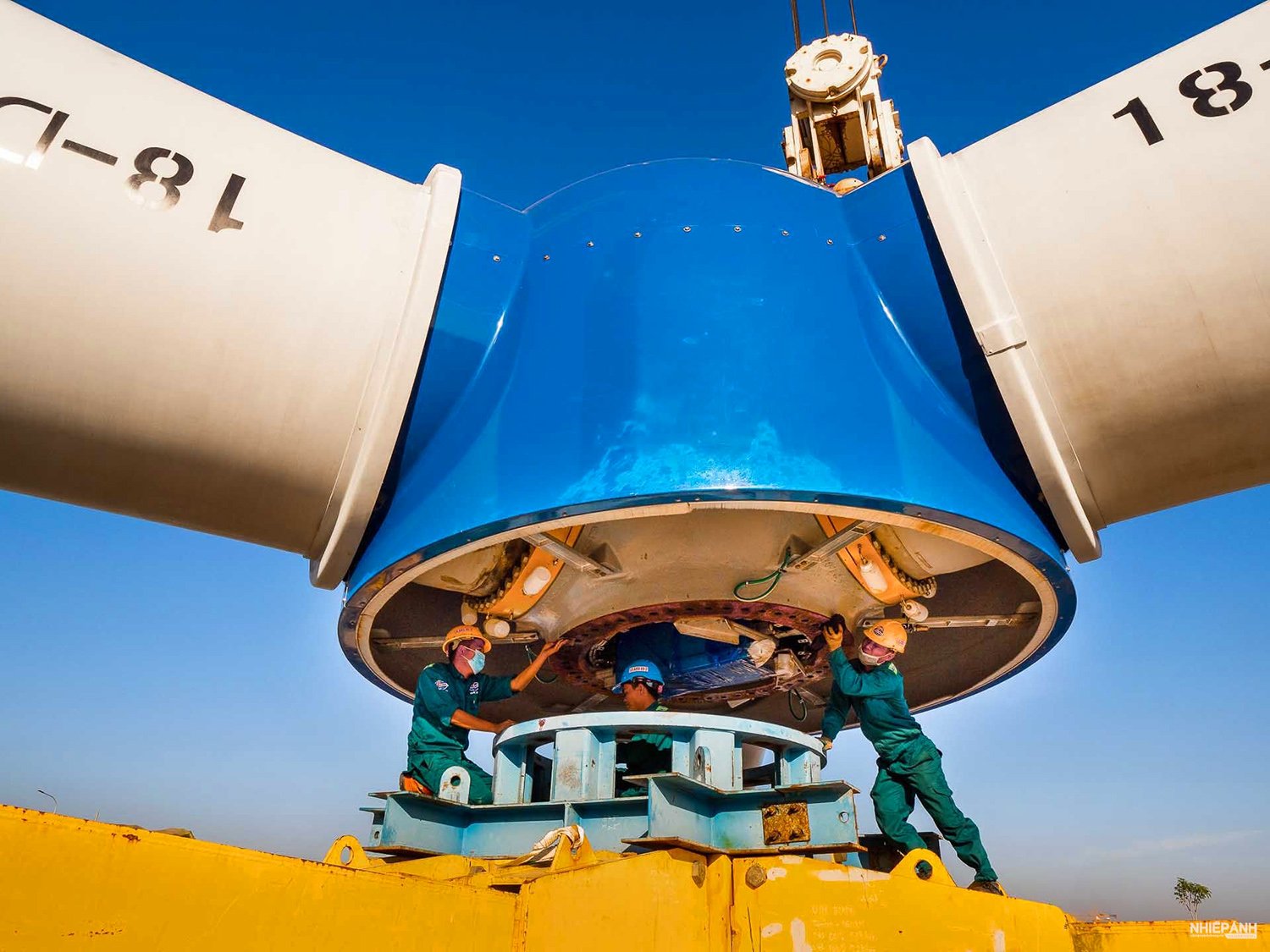
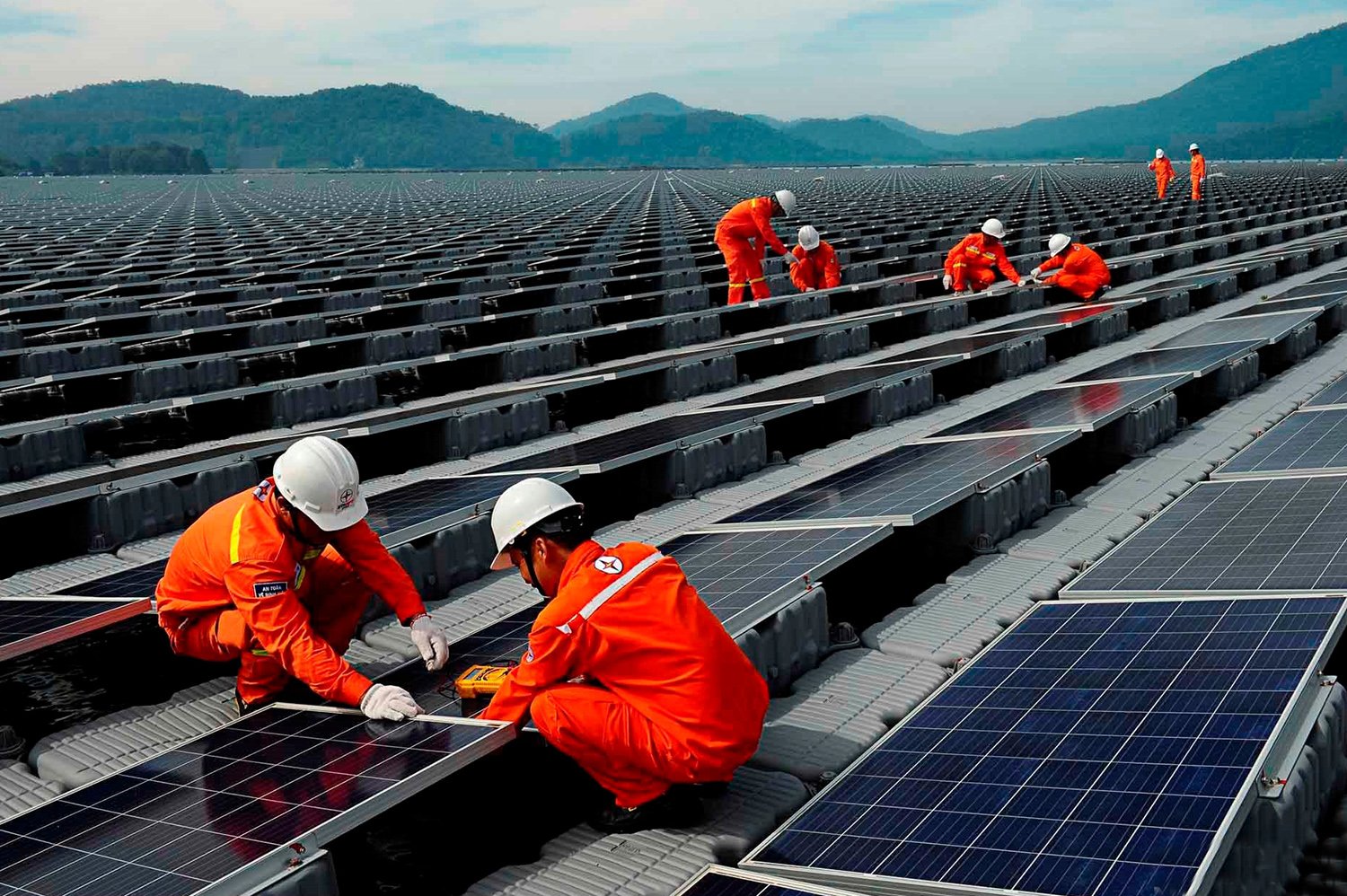



![[Photo] "Ship graveyard" on Xuan Dai Bay](https://vphoto.vietnam.vn/thumb/1200x675/vietnam/resource/IMAGE/2025/11/08/1762577162805_ndo_br_tb5-jpg.webp)






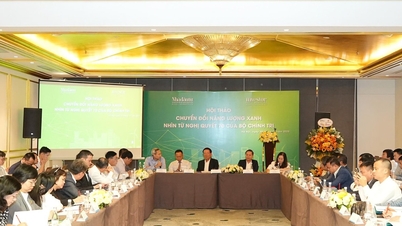

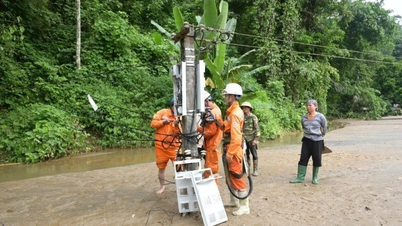

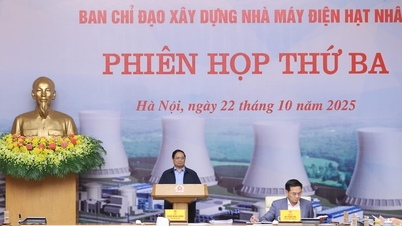

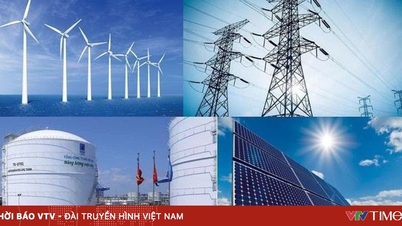




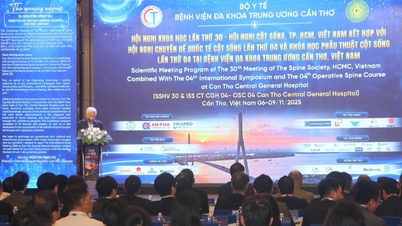











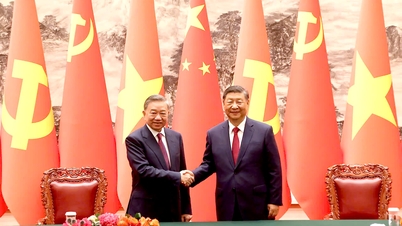
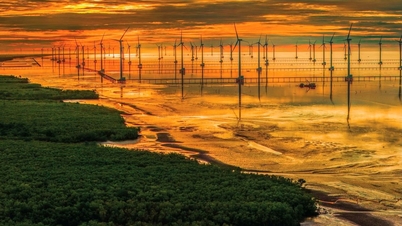
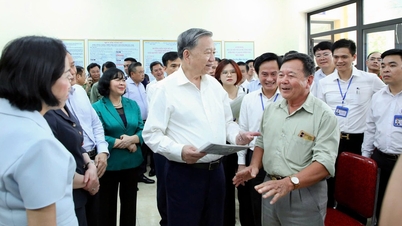
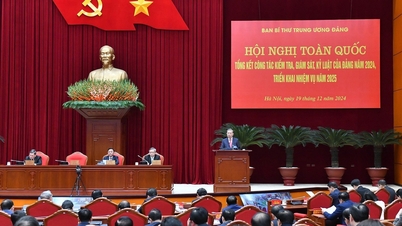
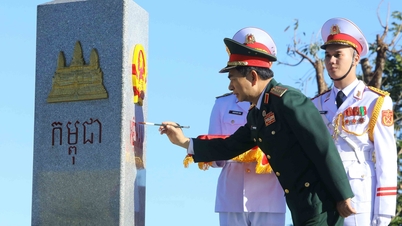



![[Video] Hue Monuments reopen to welcome visitors](https://vphoto.vietnam.vn/thumb/402x226/vietnam/resource/IMAGE/2025/11/05/1762301089171_dung01-05-43-09still013-jpg.webp)





















































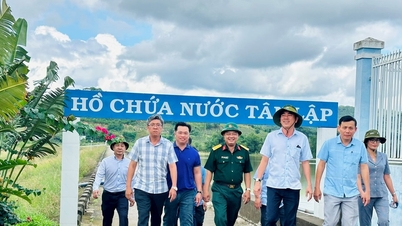
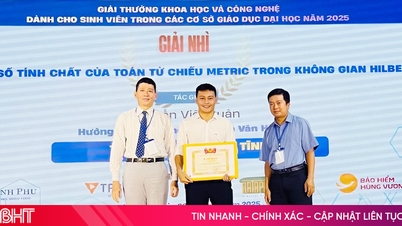














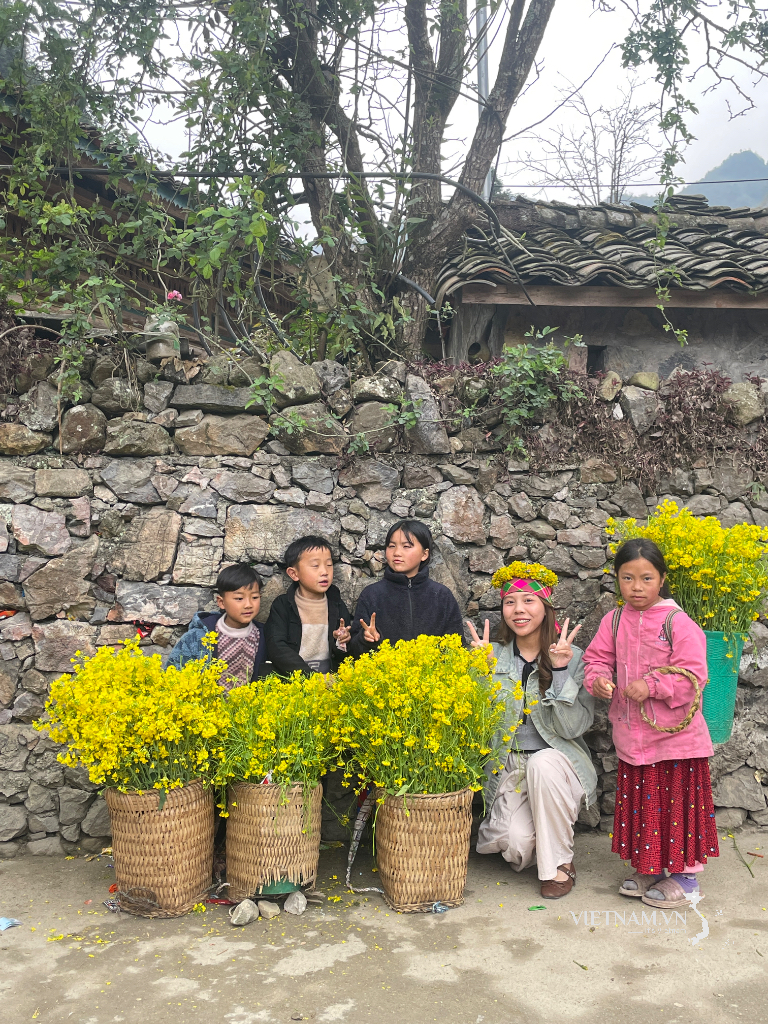
Comment (0)